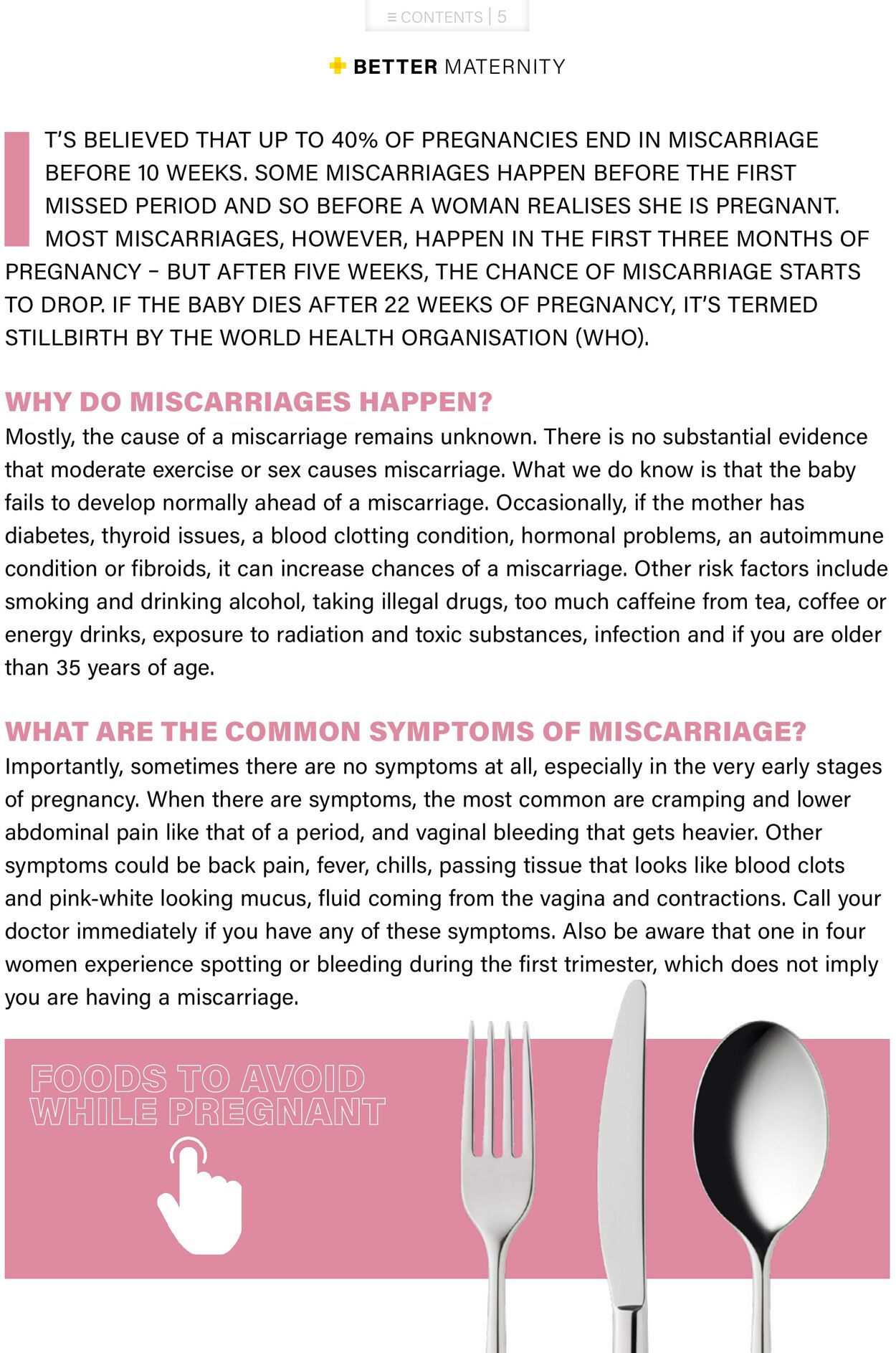













Products in this catalogue
“> BETTER MATERNITY T'S BELIEVED THAT UP TO 40% OF PREGNANCIES END IN MISCARRIAGE BEFORE 10 WEEKS. SOME MISCARRIAGES HAPPEN BEFORE THE FIRST MISSED PERIOD AND SO BEFORE A WOMAN REALISES SHE IS PREGNANT. MOST MISCARRIAGES, HOWEVER, HAPPEN IN THE FIRST THREE MONTHS OF PREGNANCY - BUT AFTER FIVE WEEKS, THE CHANCE OF MISCARRIAGE STARTS TO DROP. IF THE BABY DIES AFTER 22 WEEKS OF PREGNANCY, IT'S TERMED STILLBIRTH BY THE WORLD HEALTH ORGANISATION (WHO). WHY DO MISCARRIAGES HAPPEN? Mostly, the cause of a miscarriage remains unknown. There is no substantial evidence that moderate exercise or sex causes miscarriage. What we do know is that the baby fails to develop normally ahead of a miscarriage. Occasionally, if the mother has diabetes, thyroid issues, a blood clotting condition, hormonal problems, an autoimmune condition or fibroids, it can increase chances of a miscarriage. Other risk factors include smoking and drinking alcohol, taking illegal drugs, too much caffeine from tea, coffee or energy drinks, exposure to radiation and toxic substances, infection and if you are older than 35 years of age. WHAT ARE THE COMMON SYMPTOMS OF MISCARRIAGE? Importantly, sometimes there are no symptoms at all, especially in the very early stages of pregnancy. When there are symptoms, the most common are cramping and lower abdominal pain like that of a period, and vaginal bleeding that gets heavier. Other symptoms could be back pain, fever, chills, passing tissue that looks like blood clots and pink-white looking mucus, fluid coming from the vagina and contractions. Call your doctor immediately if you have any of these symptoms. Also be aware that one in four women experience spotting or bleeding during the first trimester, which does not imply you are having a miscarriage. FOODS TO AVOID WHILE PREGNANT (@)
| Name | Details |
|---|